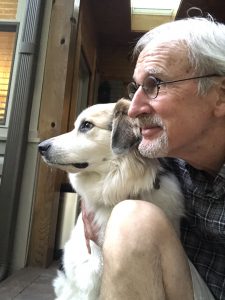How can meditation help you if it is not a tool to improve your attention? And why are professionals so reluctant to use the word, meditation?
I hear it all the time. Call it mindfulness; don’t call it meditation. Don’t call it mindfulness; call it mindful awareness. If you call it meditation, people will think you are prescribing a religion. My impulse is to shout: Just be quiet and sit! Don’t worry about the label!
I’m not ordained, certified, or sanctioned as a meditation teacher. I have only practiced and studied meditation for more than half my life, and I’m still no expert; I’m not trying to be. But I have something to say about the relationship between practicing awareness and practicing mindlessness. If you are in the ADHD familly, you have more experience with one of those practices than the other, and you can guess which one.
Practicing awareness is a thing in itself, but if you practice to attain some unattainable goal, like stopping your thoughts, you will get stuck on a perpetual carousel. The end of thinking will happen involuntarily when you die; so don’t be in such a hurry to get there.
Dr. Daniel Siegel has demonstrated that individuals with ADHD who practice mindful awareness show a reduction in ADHD symptoms to a degree that rivals medication. In a webinar I attended, he told a story about telling his colleagues, who asked what medications his research subjects were taking, to “substitute a t for the c.” He was telling them to substitute meditation for medication. That doesn’t mean meditation is a tool to fix a broken brain. Practicing awareness is simply the opposite of practicing mindlessness.
When you practice anything persistently enough, new habits start to form. But when you try turning awareness into a tool, you will be constantly evaluating if the tool is working. If you become even more aware of your mindlessness by meditating, you might conclude that meditation is not working. Then you may assume you are doing something wrong. Sitting with awareness of what your brain is doing, even when it is wandering, is not doing something wrong.
What if you discovered, when meditating, that you are perpetually evaluating yourself and questioning your competence and your worth, even questioning whether you are meditating correctly? Would you be practicing awareness? I say, yes indeed. You would be observing the activity of your brain. Imagine that you have observed your wandering mental activity often enough that you are tired of bothering yourself about it. At that moment, you might choose to give up practicing because you have a lot of experience with giving up. But what would happen if you stopped bothering yourself about your wandering mind? Perhaps you would begin seeing a layer of self-defeating thought (the judgment that your mind should not be wandering) for what it is. You are watching the movie of your self-critical mind, one that judges constantly. If you are watching the judgment without judgment, your are practicing simple awareness.
I have been on a mission for years to encourage adults with ADHD to practice a more accepting and compassionate attitude. You probably wouldn’t tell an anxious friend to stop worrying about their worrying when they have every reason to be worried about a significant health issue. You would be kind to your friend. So why are you so unfriendly to yourself? One plausible reason is that you have a long history of being judged, and you have adopted self-criticism as a pre-emptive strategy. You would rather experience, and maybe even express, your shortcomings than be criticized by others who are better than you, which is most people. Does that have a familiar ring? Or maybe you do the opposite; you know better than everyone else, and you don’t care what anyone thinks. But if you really don’t care, why do you protest? I believe those two responses, self-deprecation and narcissistic thinking, are flip sides of the same coin.
So, if you think you cannot meditate, simply because your mind wanders a lot, what good would it do to watch your brain wander, much less engage in the boring task of bringing your awareness back to the present moment again and again? My answer is simple. You can do that. The only hard part is doing it without judging anything. That is what enlightenment is…turning up the lights to see what’s happening inside and outside of your brain. The idea of the brain observing the brain is complex, for sure, but simple awareness is simple.
Observing self-defeating mental habits demystifies the habits. Your mind wandered, so what? When you watch the stream of wandering thoughts and interrupt the stream by labeling it, “thinking,” you are stepping back from the content of your thoughts. You are letting them be. As you continue to sit with gentle awareness, you just might discover some relief from mindlessness, if only for seconds at a time. You cannot run a marathon tomorrow, but you can always start where you are.
The goal is just to sit and be aware, not to gain from sitting. If you feel you can only sit for two minutes at a time, and that you must get up and pace before resuming, just continue to sit with the notion that you cannot tolerate restless feelings. When you continue to sit, you are tolerating the thought instead of believing it and letting it control you. It is that simple. You just have show up and practice.
Awareness is a thing in itself. You might even meditate with some approximation of that sentence, like, “Awareness just is.”
If there is a goal in my meditation practice, it is only to put my rear end on the cushion or chair and practice. When my judging self recedes into the background, my awareness comes to the foreground.
Awareness finds us; we don’t find it.
